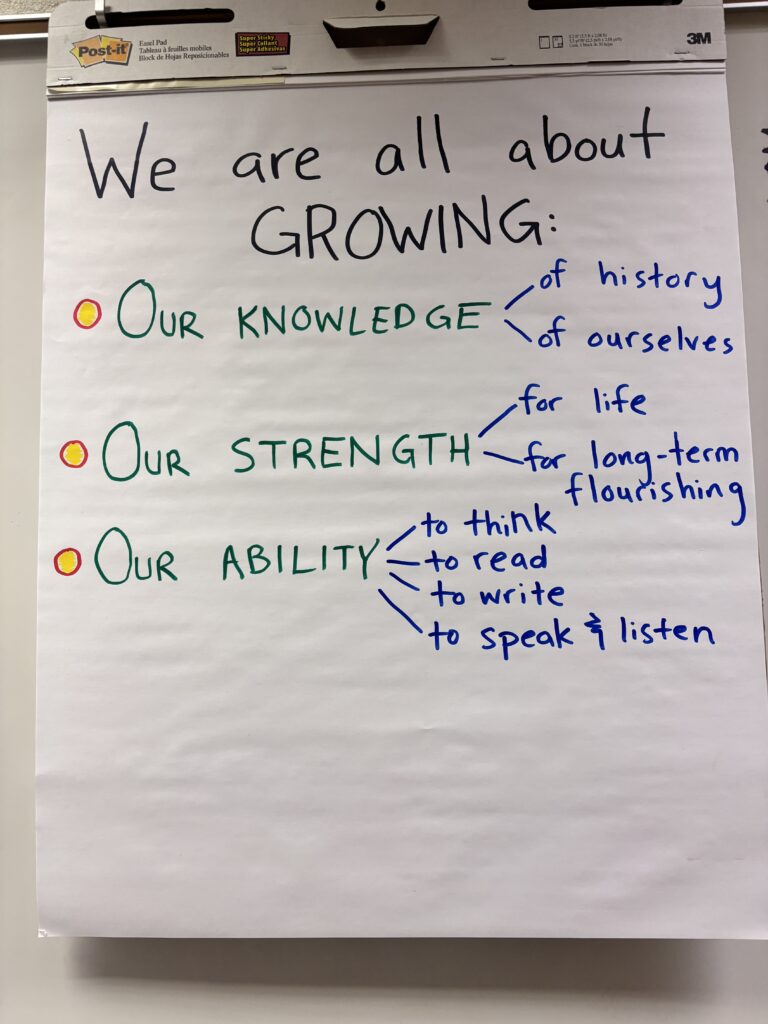Dear colleague,
I run this blog like I run my classroom: I assume nothing about your political leanings and keep private my own. Education, I've long said, is all about promoting the long-term flourishing of young people by teaching them to master things that, apart from school, they'd be unlikely to master. This is a nonpartisan endeavor, and intentionally so. Everyone is invited.
This nonpartisan angle was challenged in the earliest years of my writing career when the topic I focused on was the Common Core State Standards (which were the topic of my first book). Though a super boring topic when I first started writing in 2012, by the time I had a book on it out in 2014, it had become a hot button political issue. (This boring-thing-becomes-polarizing trend was just getting warmed up back then.)
Yet despite the growing political hype around the CCSS, my aim in writing didn't change. I wanted to understand the standards. I wanted to see if they could help me to simplify and improve my teaching practice.
At first, I was overwhelmed by the standards.
Slowly, they began to make sense.
And by the time I had written the last word of that first book, my mind had been transformed by the process in such a way that These 6 Things was already germinating. I steered clear of the piranha cloud of political prognostications that eventually swallowed up the Common Core and instead focused on learning, experimenting, growing.
But there were some during that period who argued my apolitical stance was misguided. Teaching, one reviewer argued, is an inherently political act; not taking a stand is taking one.
At first I was bothered by these ideas, but that was years ago. Now I agree with them — deeply so.
- Teaching is political, in that it empowers and emancipates the learner to experience and interact with reality in ways that, previously, they could not.
- I do take a stand, which is that I'm a teacher and so I'll teach.
Let's use a student (we'll call her Emily) as an example of what I'm talking about. Today in my classroom, Emily wrote the following:
Some takeaways that I have from the presidential election is that it's weird that I can finally pay more attention to things that are going on around me and understand the election.
This is a ninth grader describing a change in how she experiences reality. And all that it took was a very basic-looking sequence of educational experiences in which she was:
- Given some articles regarding current events (e.g., how elections work, what battleground states are, how campaigns strategize, what polls mean, the war in Ukraine, the Israel-Gaza conflict)
- Taught what the unfamiliar words in the articles meant
- Given lots of opportunities to write (i.e., to think) about what she was learning about herself, about history, about life
(For a bit more context on how I selected those articles, see this video; for more on why writing is a central part of my class, see this one.)
What will Emily do with her newfound capacities? I do not know. But what I do know is that she is a slightly different kind of creature than she was when we first met; where once she couldn't see, now she's starting to.
An education did that.
So I don't regret not taking an openly political stance on the Common Core, nor do I regret continuing to avoid such things in my writing. There are significant changes I would like to see in our world, and many are definitely in the realm of our bitter, brooding, foreboding politics. But in my classroom and in my writing, I don't find expressing these things overtly is the best way to enact the changes I wish to see.
Rather, the greatest good I can do with my working life — for my students, my country, my world — is 1) to help my students master the disciplines I am tasked with teaching them and 2) to help you help yours do the same. By guiding them, expecting them, supporting them to grow their knowledge, strength, and ability (see image below), I am immersed in a profoundly political act, but one whose effects run deeper and endure longer than what passes as political these days. As I do this, I try to model for them the ways of being that a flourishing democracy depends on: civility, kindness, open-mindedness, compassion, and what MLK Jr. called “neighbor-love.”

A good education has an impact that humans fail to measure adequately. Its true effects are seen not in academic calendar years or on standardized tests but rather in generations and on cultures. The ripples you and I are making as we enlist our hearts and minds in the mundane-seeming work we do will reverberate for a thousand years.
Teaching right beside you,
DSJR
Leave a Reply